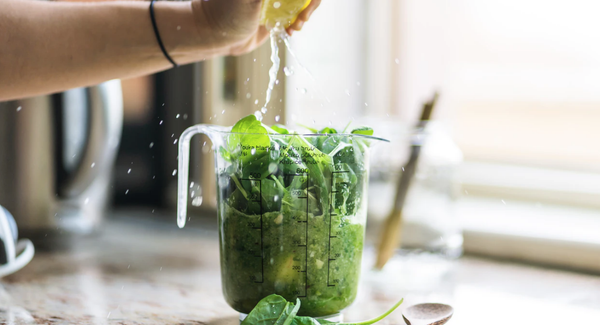There are times when I feel like sleep deprivation is the source of all my problems.
I know life is rarely actually that simple, but how much better off would we be if we prioritized sleep? I just know that I, personally, have been much better off since sleeping at least seven hours a night — but it's not always easy.
The relationship between sleep and mental health is a bit of a catch-22. Poor mental health can adversely affect sleep, while poor sleep can also cause poor mental health. And in patients suffering from a psychiatric disorder, chronic sleep problems affect 50 percent to 80 percent of patients, especially patients with anxiety, depression, bipolar disorder, and ADHD.
"Neuroimaging and neurochemistry studies suggest that a good night's sleep helps foster both mental and emotional resilience," writes a 2019 Harvard Mental Health Letter.
Of course, it may be a privileged position to just tell you to sleep for your mental health. A good night's sleep is not something everyone can get, but the article targets those of us that willingly forgo sleep because we feel there are more important things to do. I am also not someone who has young infants or toddlers, where sometimes it will be inevitable to have sleepless nights, so I consider myself a lucky person.
My life has been drastically different ever since I started prioritizing sleep, something I didn't do in college. I don't sleep great every night, but I sleep adequately because I started to realize how much sleep affects on a given day. It's not just productivity, but my interactions with people -- I'm more irritable -- I had a bad night's sleep and less patient with people, tendencies that make me not love my neighbor as much as I should.
But what happens if you're so anxious that you can't sleep? What if your mental health is preventing you from sleeping, or causing sleep disturbances? Again, it's a catch-22 situation where a meta-analysis of 21 studies found that people who experience insomnia have a two-fold risk of developing depression. But also a situation where depression and anxiety can also cause insomnia.
To me, it's a question of prioritizing. If I feel like I can't do anything well or right, like I can barely function in the afternoon, I will take a lengthy nap whenever I can. I know the research that says napping after 3 p.m. and for several hours at a time is not helpful to your overall sleep schedule, but I don't quite have the maturity to prioritize my sleep schedule as much as my immediate need for sleep.
Something I can do better is to have a schedule and routine to stick to. I completely neglect research that tells us to neglect using our phones and screens before sleep — I find that before I go to bed is the best time to catch up on a TV show I'm binging.
In regular times, I probably wouldn't binge TV as much before bed, but my logic is that the pros outweigh the cons in the midst of the pandemic. I start work later and work intermittently throughout the day. I sleep more ever since the stay-at-home order than I do normally, and part of it is because I need to maintain my sanity.
According to Kendra Cherry of Verywell Mind, the mood changes acquainted with bad sleep "make it much harder to cope with even the minor stresses of daily life." We start to get agitated and overwhelmed by even the most simple of things that on a normal day, we don't get overwhelmed by. I have, for example, been overwhelmed by the commute to work on a day that I didn't get enough sleep, being more disturbed by traffic and other bad drivers, whereas on most days a commute is not really a big deal.
Of course, obsessing over sleep isn't helpful either. You, like me, may have found it extremely difficult to go to sleep if you're trying to force yourself to sleep, tossing and turning throughout the night.
Research behind the link between sleep and mental health is still a black box and not as developed as some fields of research, but it's no secret that we should stop resisting our need to sleep.
In the words of Johnny Jung in "The Startup," a sleeping brain is still firing and sending electrochemical signals, particularly during REM sleep while we're dreaming. Jung notes that the glymphatic system is only active during sleep. The glymphatic system was discovered just seven years ago by researchers at the University of Rochester, and the system acts as the brain's sewer system, clearing the brain of neurotoxic waste, including amyloid-beta, the protein that forms plaques in Alzheimer's Disease.
Less sleep means impaired glymphatic function, which then means more accumulation of neurotoxic substances and impaired influx of cerebrospinal fluid (CSD) through the system. Sleep, then, is a biological necessity rather than a luxury.
However, only 10 percent of Americans prioritize sleep over other aspects of daily living, such as work, fitness, social life, and hobbies and personal interests.
I'm probably in that 90 percent of Americans that doesn't prioritize sleep over the rest of life, and we have to acknowledge that how we don't see sleep as a sexy issue. I would rather binge-watch "The Sopranos" and "The Wire" than go to sleep on time, because those are shows that have international acclaim and hype.
No one hypes up sleep.
It's just something that we need, something we have to do to function. In the world of instant gratification we live in, sleep isn't something instantly gratifying compared to watching TV, texting our friends, or listening to music.
Of course, there are just circumstances where we can't sleep enough. Some of us are young parents of very restless children. Some of us are in the military. Some of us work the night shift or handle multiple jobs.
I know when I have a poor night's sleep, that's something I usually need to make up. Whether making up a poor night's sleep comes in the form of a nap during lunch, a nap during my planning period at work, closing my eyes for rest at some point is essential.
It might be an overly simplistic solution, and just because you're well-rested and sleeping well doesn't mean that everything in life is fixed. But the best thing you can do for your mental health is sleep — your mind and body won't regret it.



















